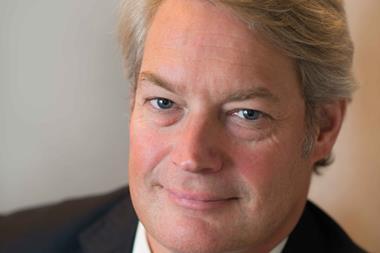The Union – the coalition between the Christians Democratic Union (CDU) and the Christian Social Union (CSU) – will likely present a joint programme to govern Germany, which will include pension policies, at the end of June or beginning of July, a spokesperson for the CDU told IPE.
The CDU and the CSU are currently cooperating to design “specific proposals” to build a “future-proof” social security system, the spokesperson added.
Armin Laschet, the Chancellor nominee for the CDU and prime minister of North Rhine-Westphalia, has recently floated the idea of a second Pension Commission – Rentenkommission – to find a “large social consensus” to reform the country’s pension system with a long-term view over the next 10-15 years.
It is essential to set the right course early to secure pensions for future generations without overburdening contributors, as “we are heading towards a demographically difficult time, especially in the period between 2030- 2050,” the spokesperson added.
”We have always said that we need a longer working life” with greater life expectancy, Laschet said recently, adding that the introduction of retirement age at 67 was “the right decision.
”The idea of reducing pressure on pension contributors and extending the retirement age echoes the proposals of the Mittelstands und Wirtschaftsunion (MIT), a political association founded on the principle of social market economy affiliated to the CDU/CSU.
A document approved at the end of March by the association’s executive board stated that the principle of “intergenerational equity” has to be anchored in its constitution and reinforced at an institutional level to secure long-term financing of pension benefits without overburdening contributors.
Increasing life expectancy must be taken into account to define retirement age, the document stated, adding that if life expectancy increases by one year, retirement age is to be increased by three quarters of a year, while the expected pension payment period is extended by a quarter of a year.
A tough electoral competition
While other political parties, and competitors for September elections drafted plans on pensions in their programmes, the CDU remains a work in progress, the German Institute for Retirement Provision (DIA) said.
The DIA deemed the idea of lifting the retirement age by nine months if life expectancy increases by one year “not new”, as it had already been pitched by a number of experts and applied in other European countries. The models differ for the ratio between life expectancy on one side, and working life and the retirement phase on the other.
The DIA also noted that the question of retirement age was “completely excluded” from the conclusions drafted by the previous Pension Commission.
The programmes for the election campaign drawn up so far offer a snapshot of the priorities set by the different parties. One of the Greens’ top priorities is to secure a pension level at 48% of the average wages in the long term.
The Greens want to address the basic pension model to turn in it into a “real guaranteed pension”, while sticking to retirement age at 67, according to its programme.
The Greens also support the idea of Bürgerfonds – a form of capital-funded pension, that would replace the Riester-Rente, diversify risks and waive guarantees.
The Social Democratic Party (SPD) wants to reinforce the statutory pension and a pension level at least at 48% of the average wages.
In its programme the Free Democratic Party (FDP) refers to a combination of statutory, company and private pensions. It takes the Swedish model as an example both to make retirement age flexible and to introduce a statutory equity pension.







